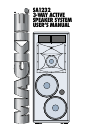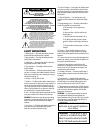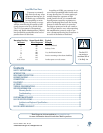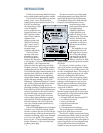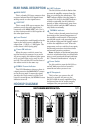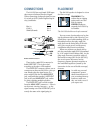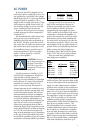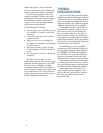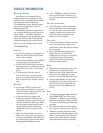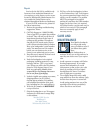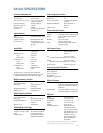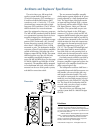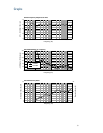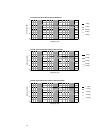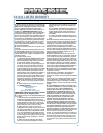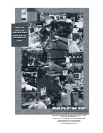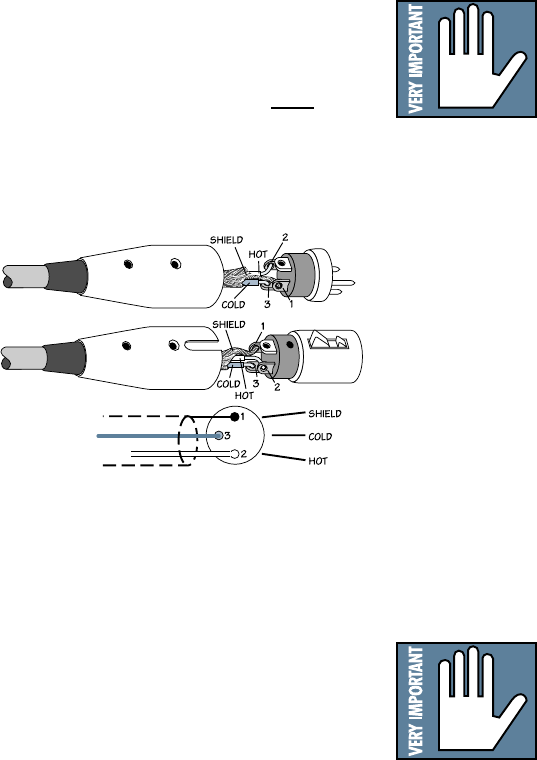
6
PLACEMENT
The SA1232 speaker is designed to sit on
the floor or stage.
WARNING: The
cabinet has no rigging
points and is not suit-
able for rigging.
NEVER attempt to
suspend the SA1232 by
its handles.
The SA 1232 should never be pole-mounted.
You can create a horizontal array by plac-
ing the cabinets side-by-side. However, you
should have a good understanding of the re-
lationship between the splay angle (the
angle between the facing sides of the cabi-
nets), the on-axis power, and frequency
cancellation effects between cabinets.
When two cabinets are placed side-by-
side, the actual splay angle is 20º (determined
by a 10º angle on each cabinet side). As the
splay angle increases toward the angle of
horizontal coverage (90º for the SA1232),
the on-axis power decreases, but the
frequency response becomes smoother as
the comb-filtering effects (caused by the
interaction in the area of double-coverage)
decrease.
As with any powered
components, protect
them from moisture. If
you are setting them up
outdoors, make sure
they are under cover if
you expect rain.
CONNECTIONS
The SA1232 has one female XLR input
that accepts a balanced line-level signal.
When connecting a balanced signal, be sure
it’s wired per AES (Audio Engineering So-
ciety) standards:
XLR
Hot (+) Pin 2
Cold (–) Pin 3
Shield (Ground) Pin 1
Balanced XLR Connectors
There is also a male XLR connector la-
beled
LOOP OUT
. This is also wired
according to the above AES standard.
The
LOOP OUT
connector allows you to
connect more than one SA1232 to your sys-
tem. Simply plug the signal source (i.e.,
mixer output) into the first
MAIN INPUT
jack, and patch that speaker’s
LOOP OUT
jack to the next
MAIN INPUT
jack, and so
on, daisy-chaining multiple speakers.
The
LOOP OUT
jack is wired straight
from the
MAIN INPUT
connector — there is
no electronic circuitry between — so the
signal coming out of the
LOOP OUT
jack is
exactly the same as the signal going in.



